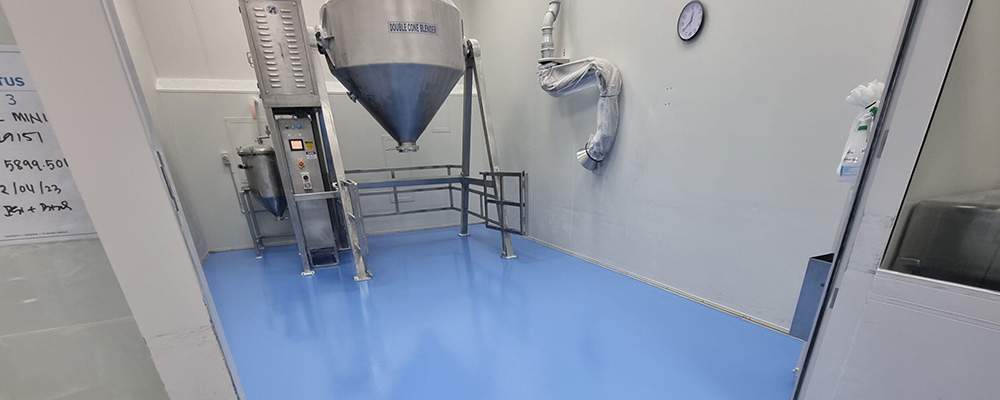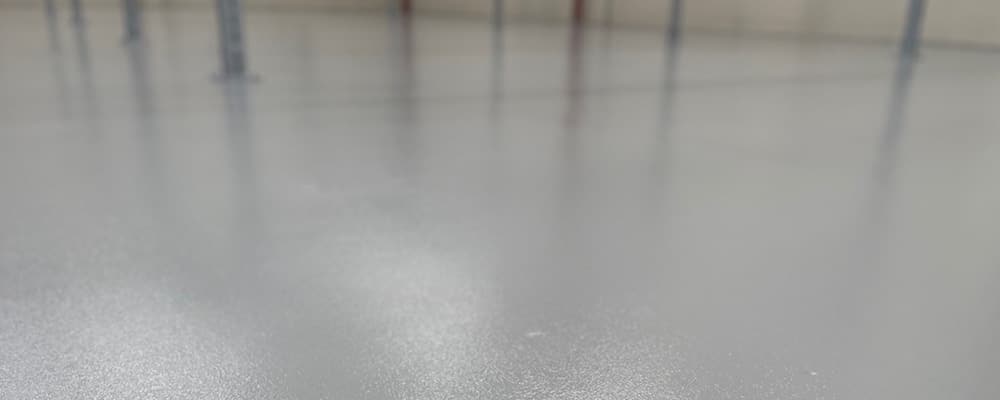What Flooring Is Best To Use For The Food Industry
- Home
- ..
- Blog

Selecting the appropriate flooring for food manufacturing and beverage facilities involves thinking about more than how it looks, as this decision influences safety, hygiene, and operational efficiency. With a myriad of options available, understanding the arguments both for and against each available option will guide business owners to make the right decision for their particular food processing or handling environment.
Food grade flooring is a good alternative for such facilities due to its exceptional resilience to chemicals, moisture, and severe temperatures. It adheres to strict hygiene standards, thereby preventing contamination and assuring compliance with industrial rules.
Epoxy flooring offers a robust and adaptable solution, ideal for various areas within the food industry due to its sleek finish and well-renowned durability.
Epoxy resin flooring is widely praised for its resilience and hygiene properties. As a seamless and non-porous surface, it actively prevents the proliferation of bacteria whilst also being easy to wipe down, making it ideal for spaces where food safety is paramount. Its robustness against wear and chemical exposure also stands out, ensuring longevity even under the toughest conditions.
However, epoxy flooring is not without its drawbacks. The installation process can be lengthy, as it requires a significant curing time that might disrupt operations. Additionally, while it resists many types of damage, epoxy can be susceptible to UV light and may discolour if exposed to direct sunlight.
Polyurethane floor coatings are engineered to withstand extreme conditions, making them an excellent choice for areas subject to heavy use and severe temperature changes.
Polyurethane kitchen flooring excels in environments subject to extreme temperatures and heavy wear. It offers superior resistance to thermal shock and high temperatures, making it suitable for areas near ovens and fryers. Its flexibility also allows it to absorb impacts better than harder surfaces, providing comfort for workers on their feet for long periods.
On the downside, polyurethane floors can be more costly than other options. The installation must be carefully managed to ensure proper adhesion and performance, and like epoxy, it requires a curing period that could interfere with kitchen operations.
Food-safe epoxy coatings are specifically designed to meet the high hygiene standards required in food processing areas, providing a safe and sanitary environment.
Food-safe epoxy coatings are specifically formulated to meet the stringent sanitary standards of the food industry. These coatings are completely sealed, reducing the risk of contamination and simplifying the cleaning process. They are also highly customisable, allowing facilities to choose from various anti-slip and colour options to enhance safety and aesthetics.
The main limitation of epoxy coatings is their sensitivity to sunlight and certain chemicals, which can lead to discolouration and degradation over time. Planning the application to minimise downtime is also essential, as these coatings need time to cure fully before the area can be used.
Ceramic tiles combine a smart appearance with practical benefits, with the main one being that they’re amongst the easiest types of floors to clean.
Ceramic tiles are favoured in the food industry for their hygienic properties and ease of customisation. Their glazed surfaces resist stains and odours, making them easy to clean and maintain. Ceramic tiles can also be customised in a variety of colours and patterns, allowing facilities to tailor the appearance to match their specific branding without compromising on functionality.
Despite their durability, ceramic tiles can be brittle and prone to cracking under heavy impact, which might be a concern in environments with heavy equipment. Additionally, the grout lines between tiles can become a breeding ground for bacteria if not properly sealed and maintained, requiring regular resealing to maintain their hygienic properties.
Vinyl flooring is a practical and economical choice that’s available in almost every design imaginable whilst remaining suitable for various applications in the food industry.
Vinyl flooring is recognised for its cost-effectiveness and versatility, making it the de facto choice amongst business owners who want to minimise their financial outlay. Its water resistance is a significant advantage in environments prone to spills and moisture. Vinyl is also available in a variety of designs and textures, which can mimic more premium-grade materials at only a small percentage of their cost, providing aesthetic flexibility to match any decor.
While vinyl is affordable and visually versatile, it has its limitations, especially in high-impact areas where durability is crucial. Over time, vinyl can suffer from wear and tear, such as ripping and tearing, particularly in areas that see a lot of people. If the vinyl is not seamlessly installed, it can harbour bacteria in the seams, compromising hygiene standards essential in the food industry.
Navigating the regulatory landscape is crucial for food industry flooring, as compliance affects safety and legal accountabilities.
Flooring in the food industry in Australia is governed by strict regulatory standards to ensure safety and hygiene. Compliance with Australian standards and regulations set by Food Standards Australia New Zealand (FSANZ) and the Australian Building Codes Board (ABCB) involves selecting materials that are non-porous, easily sanitised, and resistant to the harsh cleaning chemicals commonly used in food environments.
Understanding these regulatory requirements is crucial for businesses to avoid costly penalties and operational disruptions. Your choice of food grade flooring not only meets current standards but also adapts to potential updates in regulations, making the selection of flexible and easily modifiable materials advantageous for long-term compliance.
Maintenance and longevity are key to ensuring that flooring solutions in the food industry remain cost-effective and functional over time.
The maintenance requirements of flooring materials play a pivotal role in their selection. Floors in the food industry must withstand frequent, rigorous cleaning protocols without degrading. Selecting flooring that is not only durable but also easy to maintain can significantly reduce long-term costs associated with repairs and replacements.
Longevity is another critical consideration, as the food industry demands surfaces that can endure heavy traffic, mechanical wear, and chemical exposure without failure. The life expectancy of flooring materials affects the overall cost-effectiveness of the investment, influencing business decisions. Prioritising materials that offer extended lifespans while maintaining their integrity under the operational demands of food processing facilities is essential for sustainable business practices.
There is no universal solution for food industry flooring. Each type of flooring—whether epoxy, polyurethane, or a specialised food-safe coating—provides distinct advantages and disadvantages. Facilities must evaluate the area’s intended use, estimated traffic, potential exposure to harsh conditions, and budget limits.
At Safecoat Epoxy Flooring, we recognise the significance of choosing the correct flooring for your food facility. Our experts will help you select the best solution that fulfils your safety, durability, and financial requirements. Contact us today for a free consultation, and let us help you discover the ideal flooring for your business.

Epoxy floors are renowned for their durability, sleek aesthetics, and low maintenance requirements, making them ideally suited for several business...
Read more 17 May 2024